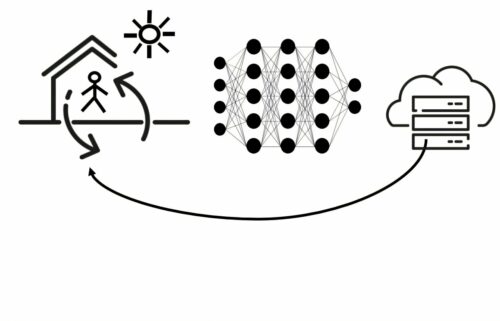Fraunhofer ISE develops neural network-based heat pump controllers to enhance energy efficiency and adaptability.

Researchers at the Fraunhofer Institute for Solar Energy Systems (ISE), Germany have designed a smart heat pump controller using artificial neural networks that adapts to environmental changes and learns dynamically over time. Artificial intelligence (AI) is used in the operation of heat pumps, enabling better energy efficiency and user comfort.
Simulations show energy savings ranging from 5% to 13% when compared to traditional heat pumps, with field tests confirming these promising results. These advancements stem from the “AI4HP” project, a collaboration involving Fraunhofer ISE, Stiebel Eltron, and French research partners CEA List and LPNC, alongside EDF R&D. The project focuses on creating adaptive heat pump controls tailored to real-world scenarios.
Homeowners, construction professionals, and energy-conscious businesses seeking efficient heating solutions are likely to benefit most from this innovation. Particularly in aging or energy-intensive buildings, the AI-driven controller can optimise heating systems while reducing energy costs and environmental impact.
Traditionally, residential heat pumps rely on static heating curves, calibrated once during installation. These curves fail to account for variables like occupant behavior, solar radiation, or aging infrastructure. By integrating AI, heat pumps can now analyse building-specific patterns, such as temperature shifts due to sunlight, and continuously refine their operation.
“AI methods must become more robust and scalable for widespread adoption,” stated Dr Lilli Frison, project manager at Fraunhofer ISE. Another researcher, Simon Gölzhäuser, emphasised the need for reliability in AI systems to gain industry acceptance.
The novel AI controller incorporates a transformer-based neural network that predicts room temperatures by linking historical data with future conditions. This intelligent system adjusts the flow temperature of heat pumps in real time, aligning it with a building’s thermal behavior.
A field test in a real building validated the controller’s efficiency, showing energy savings of up to 13% and a 25% improvement in the coefficient of performance (COP) over one heating season. Additionally, hot water heat pumps using this AI-driven approach demonstrated potential electricity savings of 8% in lab conditions.
While the results are promising, further testing is necessary to refine AI models for broader application. The research underscores AI’s potential to transform heating systems, making them smarter and more sustainable for diverse building types.









